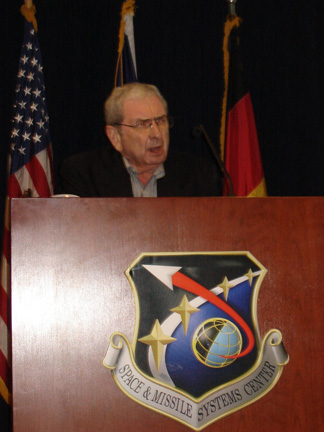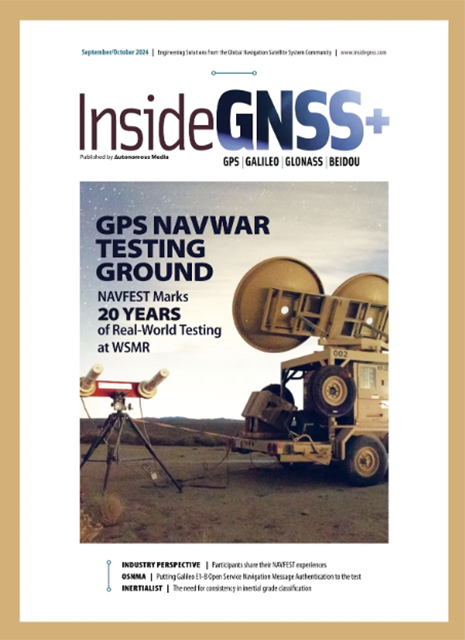 Maj. Gen. (ret.) Robert A. Rosenberg, former GPS IRT chair
Maj. Gen. (ret.) Robert A. Rosenberg, former GPS IRT chairThe GPS Independent Review Team (IRT), a key player in GPS policy for nearly 20 years, has been disbanded by the Air Force in what several sources say is an effort to save money.
Created in 1997 for a temporary three-month assignment, the IRT has been instrumental in shaping the current GPS constellation including designing military’s M-code — giving the signal its distinctive two humps — and pushing to get that signal into the constellation earlier than initially planned.
The GPS Independent Review Team (IRT), a key player in GPS policy for nearly 20 years, has been disbanded by the Air Force in what several sources say is an effort to save money.
Created in 1997 for a temporary three-month assignment, the IRT has been instrumental in shaping the current GPS constellation including designing military’s M-code — giving the signal its distinctive two humps — and pushing to get that signal into the constellation earlier than initially planned.
“The IIR-Ms would not have happened if it had not been for the IRT interceding at the highest level,” said one expert familiar with the group’s history.
That achievement was just one of the results of the IRT’s initial task — to work out potential conflicts between the defense and civil communities over the location of the second (later the third) civil signals, according to a 2007 statement by its then-chairman Maj. Gen. (ret.) Robert A. “Rosie” Rosenberg. Working primarily under Air Force Space Command (AFSPC, although the IRT did spend three years under the Office of the Secretary of Defense), the group helped marshal the civil signals through the government’s internal process and then pushed to start modernization of the constellation.
The group’s guiding principle, said a GPS expert, was that GPS is a dual-use system and both the civil and military communities needed to benefit from changes to the constellation and its operation. Things were only considered a success, the source said, if both the military and the “civils” gained capability. “It’s not one or the other.”
More recently, the IRT has been looking at a 20- to 30-year vision for the GPS system, issues around a high-gain antenna, the new operational control segment (OCX), and military user equipment.
The advisory committee has reported only to the top commander, currently AFSPC’s Gen. William Shelton, thereby insuring it would be truly independent and free from the biases of military staff. IRT focused, said the source, on giving the commander actionable information backed up by independent data.
Chartered by then-Under Secretary of Defense Paul Kaminski, the IRT was one of many government advisory committees — too many apparently. Several independent sources agreed THAT the team was disbanded as a result of the ongoing federal budget squeeze.
“I think there is a lot of pressure on the Air Force in these times of budget cuts to cut back on the number of advisory committees they had,” said another source, who noted other broad cutbacks in military spending including limits on travel. “I can understand where they are coming from.”
“Air Force Space Command used to have four or five of these [advisory committees],” said a well-placed expert. “When the money situation got tight, which it is right now,” Shelton closed some of the groups altogether and made the IRT a panel of the Independent Strategic Advisory Group (ISAG).
Sources have confirmed that the ISAG will take on the IRT’s tasks, and one expert said that overall advisory group already had been given two tentative assignments.
There will be changes, however, explained the source. The overall budget for IRT-type work will be roughly a third of what it was before. Instead of having 16 or 17 people tackling any given problem, the task groups will shrink to 3 to 5 members. As a result, the revamped IRT will necessarily be more selective in the issues it takes on.
The long-term effects of the change remain to be seen. With Shelton and other key defense officials leaving, no director at the National Coordination Office for Space-Based Positioning, Navigation, and Timing, and now the IRT being placed within the ISAG, the lines of influence and decision-making on GPS-related matters are murkier than usual.
“The whole deck got reshuffled,” quipped a worried GPS expert.





